What is EXPO-2020 in Dubai

Set to change the world, Expo 2020 is the world’s largest in-person event held during the COVID-19 pandemic. Since its opening on 1 October 2021, the site has registered 4.1 million visits so far, proving its title as the World’s Greatest Show. Attendees are treated to festivals, shows, concerts, exhibitions and national days of countries-participants on a daily basis, among other exciting events. At the same time, the major event manages to tackle global challenges the world faces today, including space, tolerance, connectivity, health and learning. Thus, visiting Expo 2020 is a rather life-changing experience, giving you an opportunity to learn about other cultures, to network with SMEs and business individuals, as well as to witness never-before-seen innovations. In this article, we have decided to gather the most popular questions about the exciting event, from its dates to its purpose, to the main theme. Nothing will be left unanswered.
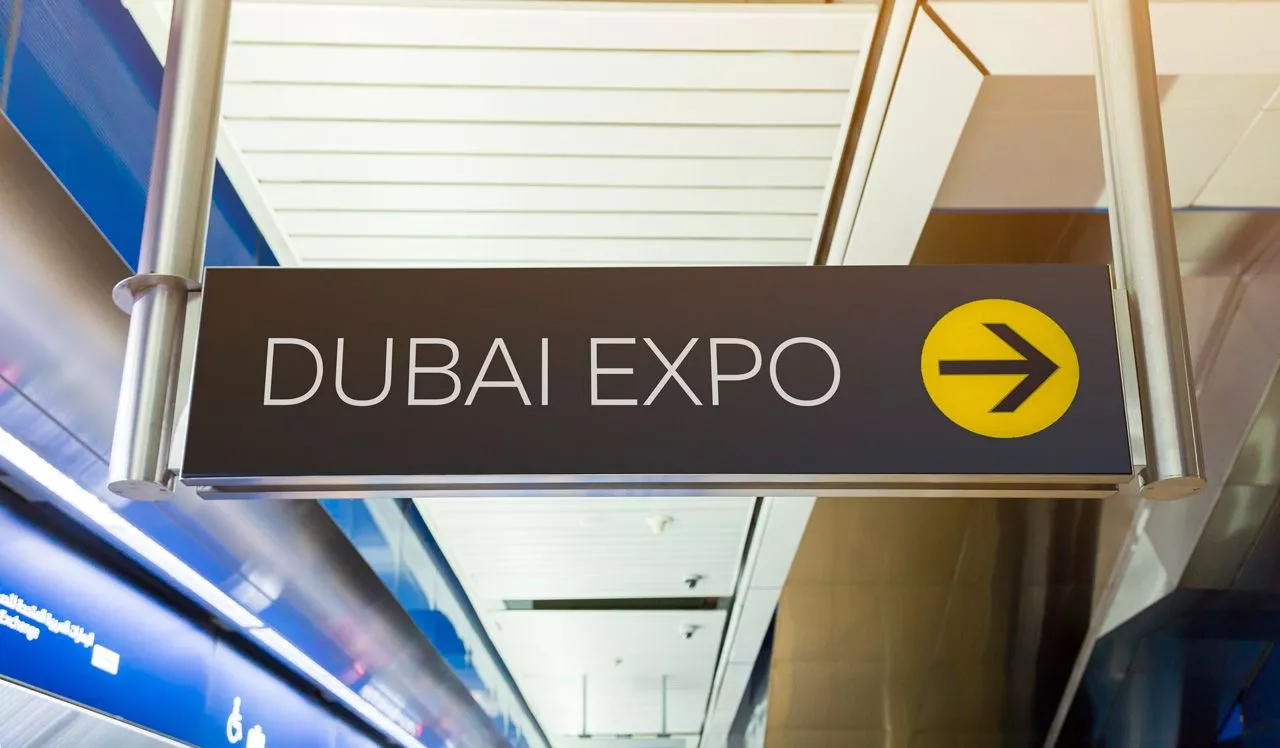
What is Expo 2020?
Expo 2020 is the most recent addition in an extensive catalogue of World Expos held in different corners of the planet. The first World Expo was hosted in London, UK in 1851 and since then the exhibition takes place every 5 years in various locations and lasts up to 6 months. Shows represent a colossal gathering of nations dedicated to finding solutions to the most pressing issues of the day, engaging with millions of attendees and offering interactive and immersive activities. The Dubai exhibition is of significant historic importance, since this is the first-ever World Expo taking place in the MEASA region. Bringing together the best innovation, culture, invention, art and science, the exposition is the ultimate platform to connect, share and learn new ideas.
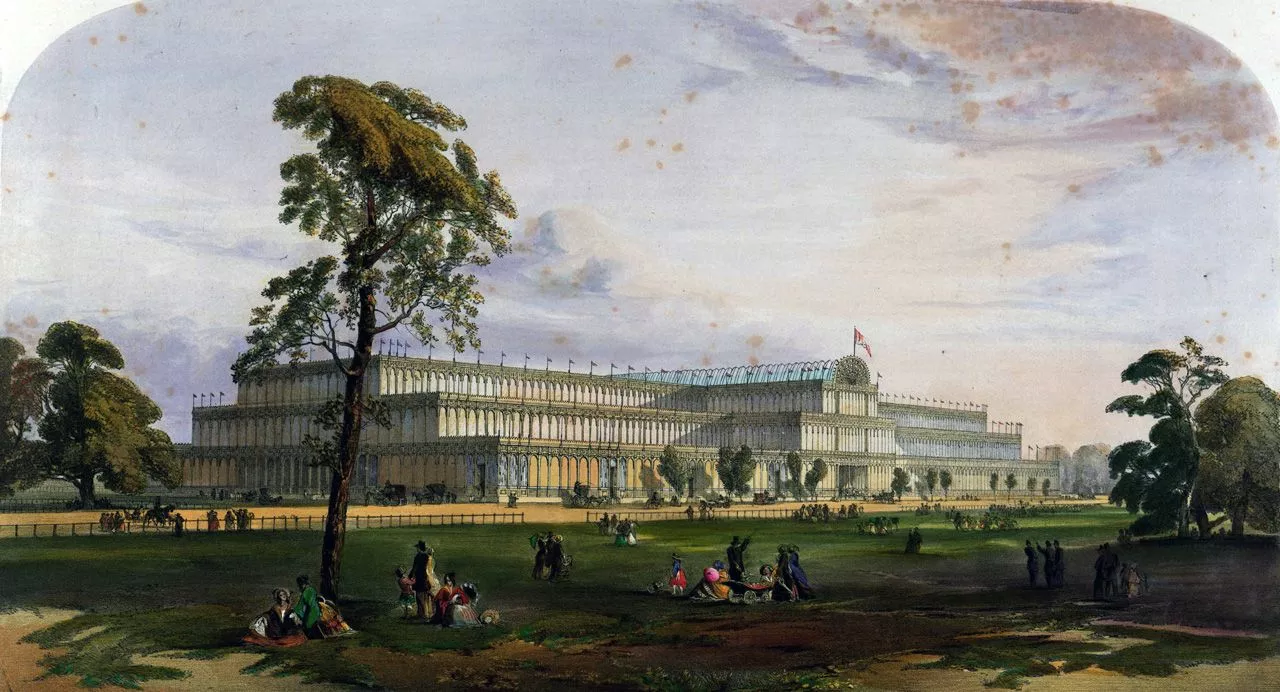
When is Expo 2020?
Expo 2020 started on 1 October 2021 and will continue until 31 March 2022, for 182 days. Originally the World’s Greatest Show was scheduled to take place from October 2020 to April 2021, but the global health pandemic made organizers delay by 1 year in the interest of safety. In spite of being held in 2021, the exposition is still called Expo 2020 for marketing and branding reasons. It is worth mentioning that this is the first time that a World Expo has not been cancelled and rather been rescheduled.
Where is Expo 2020 Located?
The site of the mega-event spans across 47.1 million sq.ft and is situated in the Dubai South Area, which is in close proximity to Al Maktoum International Airport and within easy reach of Abu Dhabi International Airport and Dubai International Airport. Both Abu Dhabi and Dubai airports are within 40 minutes of the site. Double the size of Hong Kong Island, Dubai South is one of the largest developments in the UAE and features 8 districts. Meanwhile, upon completion, Al Maktoum International Airport is set to become the world’s biggest airport.
Why is Expo 2020 Important?
To begin with, Expo 2020 aims at preserving the planet as well as looking at sustainability, mobility and opportunity. The long-awaited event is a celebration of the UAE Vision 2021. Not only does it promote the growth of tourism, but it also plans to accelerate the development of innovative businesses in the country, which will enhance the international status of the UAE as a destination to do business. In addition, the global exposition forms a part of the efforts to diversify the UAE economy away from oil, amidst the government’s plan to reach net-zero emissions by 2050. In fact, the UAE Purchasing Managers’ Index rose to the highest level in over 2 years in October, as businesses have been witnessing strong growth in new work and activity due to the beginning of the Expo. The UAE government is expecting revenue of up to AED 65B (USD 17.7B) provided that Expo is a success. Moreover, Expo 2020 is the first major commercial customer in the MEASA region to have access to 5G. It is worth noting that 80% of the site will be reused to become District 2020, which will be the first community in the region to be registered under the WELL Community Standard pilot. Besides low rise-buildings and a pedestrian-friendly environment, the upcoming development will contain parks, healthy F&B venues and a low-carbon-emission environment.
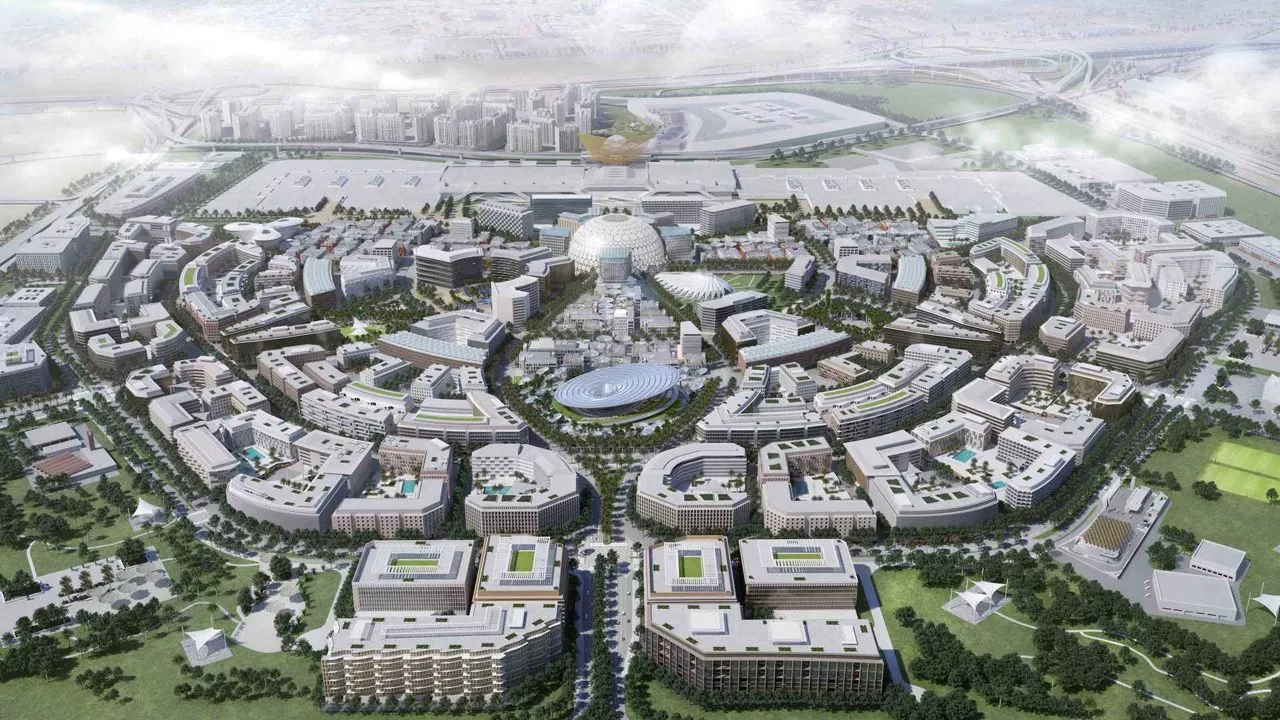
What is in Expo 2020?
As a 6-month celebration of innovation, creativity, culture and human progress, Expo 2020 offers 60 various daily shows, including parades, late-night laser shows, special effects and fireworks. Meanwhile, food lovers are treated to more than 50 global cuisines, served in 200 F&B venues across the exposition site. It is highly recommended to sign up for the Future of Food: Epochal Banquet, which is a 3-course immersive dining experience exploring the impact of artificial intellect on the future of dining. The focal point of Expo 2020 is the Al Wasl Plaza, which is the world’s largest unsupported 36-degree projection dome. With 250 laser projectors, a range of restaurants, luscious parks and fountains, this site is a total must-see. The stage at Al Wasl Plaza hosts performances by some of the most famous artists on the planet, such as the National Ballet of Senegal and the Firdaus Orchestra, curated by Oscar-winning Indian composer AR Rahman. As well as this, Expo 2020 houses the first permanent open-air art exhibition which has collected never-before-seen works by 11 artists from around the globe. In addition, visitors can enjoy Expo Beats, which is an amazing monthly festival showcasing dance, culture and music. Not forgetting the Programme for People and Planet, which is divided into 10 themed weeks. Each week will tackle the most critical opportunities and challenges within the topics of climate change, health and wellness, biodiversity, as well as rural and urban development.
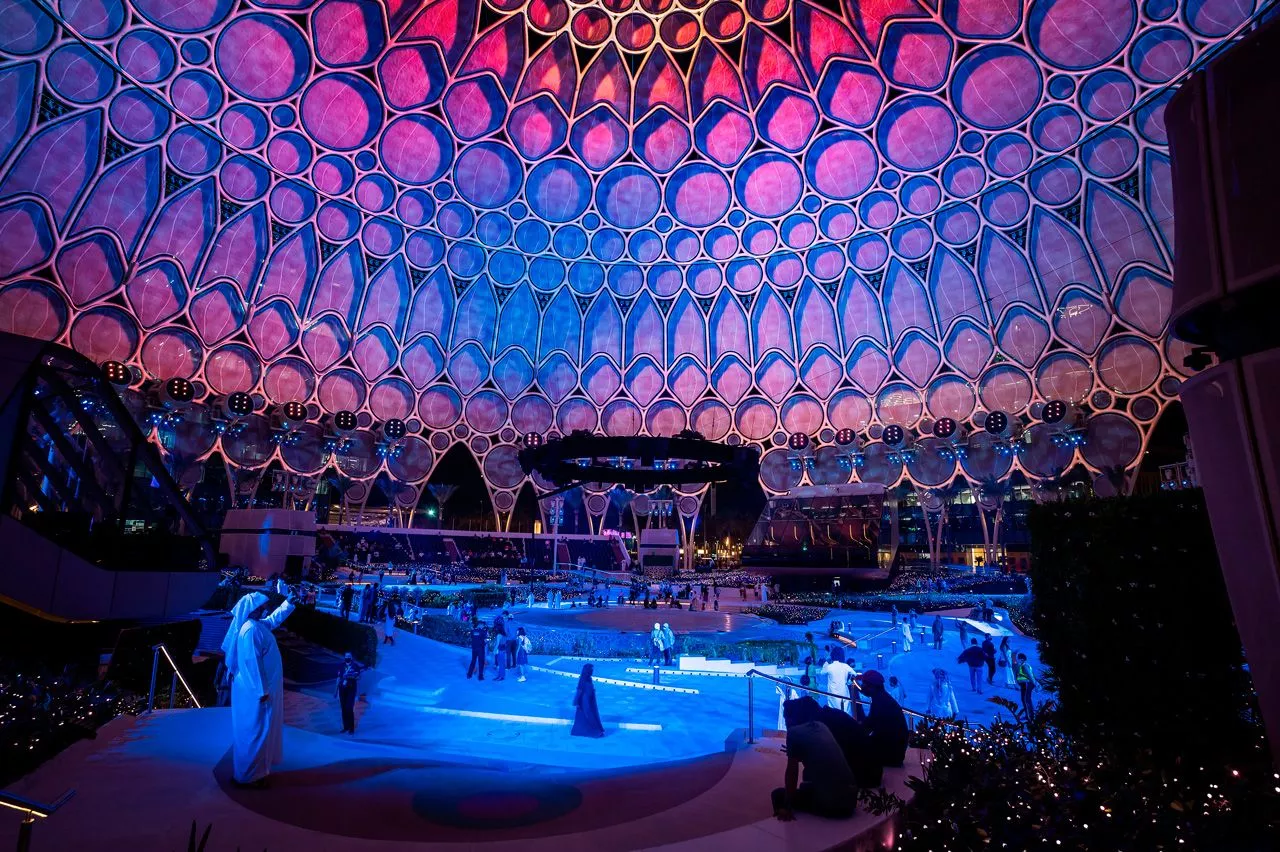
What is the Main Theme of Expo 2020?
The main theme of Expo 2020 is «Connecting Minds, Creating the Future». Therefore, each new development and invention being introduced at the global event deals with the questions of how challenging issues can be handled in an efficient and sustainable way, how humanity can unite and work together, and what benefits technology and digitalization provide in terms of solving future problems and more productive cooperation between humans.
What Themes are There in Expo 2020?
There are 3 sub-themes at the global fair: Sustainability, Mobility and Opportunity, with each one of them having its own thematic district. It is worth noting that every district demonstrates the participating countries’ pavilions which have themselves selected that specific theme. Nevertheless, the country pavilions are not the only attraction in each district, since the 3 sub-themes feature their own pavilions too.
<ol><li>Sustainability aims at preserving our world, protecting it and implementing changes to make it better. The Sustainability District showcases the most up-to-date technologies in action. Attendees will be able to see with their own eyes how humans can live in harmony with nature and technology combined. Powered by solar energy, Terra – The Sustainability Pavilion invites its visitors to fight climate change and discover the water condensing trees, along with traditional irrigation channels.</li><li>Mobility is about how everything moves forward and how the world has transformed through history, and at the same time showcases the ever-lasting impact of the great civilizations. Alif – The Mobility Pavilion presents travel-solutions of the future, space exploration and the benefits of digital integration. Its centerpiece is a mobility track of 1,082 ft which features innovative mobility devices in action. You can also find the largest elevator in the world with a capacity of carrying up to 160 people at once.</li><li>Opportunity focuses on creating connections and introducing attendees to the social innovators and change-makers, who have reshaped people’s lives all over the world. The gates of Mission Possible – The Opportunity Pavilion open up to 3 tracks which highlight key sustainable goals: energy, water and food. These tracks lead to a hall where attendees are greeted by a number of screens and can play an interactive challenge, which teaches them ‘how to be the change’.</li></ol>
How Many Pavilions are there at Expo 2020?
In total, there are 217 pavilions, and 192 of them are representatives of participating countries. The other 25 are Partner Pavilions, Organization Pavilions and Special Pavilions. It is worth noting that for the first time in the 167-year history of World Expo, every country will have its own pavilion to showcase its aspirations, innovations and achievements.
How can I get to Visit Expo 2020?
There are 4 ways to get to the Expo 2020 site:
<ol><li>Metro. Of course, the metro is the quickest and the most environmentally-friendly mode of transport to reach the grand event. In fact, the Route 2020 on the Metro Red Line was built specifically for Expo 2020 for an easy commute, which features 7 stations in total. Passengers can travel directly from Al Rashidiya Metro Station for the world fair, and Expo 2020 Stations has an astonishing capacity of serving about 35,000-47,000 visitors per day in both directions. The first trains arrive at the station at 6.15am from Saturday to Thursday and 9.15am on Friday. Meanwhile, the last departures take place at 12am from Saturday to Wednesday and 1am on Thursday nights to Fridays.</li><li>Bus. According to Dubai’s Roads and Transport Authority, 70 Expo Rider buses are deployed to run 193 trips daily from Saturday to Wednesday, and 213 trips on Thursdays and Fridays from Ras Al Khaimah, Fujairah, Abu Dhabi, Sharjah and Ajman. Those who are already in Dubai can benefit from the bus services at 9 stations, which include Al Ghubaiba, Palm Jumeirah, Global Village, Al Baraha, Dubai Mall, International City, Dubai International Airport (Terminal 3) and Dubai Silicon Oasis. It is worth mentioning that all Expo Rider buses are free of charge.</li><li>Taxi. This is also quite a convenient way to reach the Expo 2020 site. You can book a vehicle via Careem, S’hail and Uber. In fact, the Careem application enables hiring a Hala Taxi, which is the most budget-friendly taxi service in Dubai. There is a starting fee of AED 20 (USD 5.45) for rides from Expo 2020.</li><li>Car. The site of Expo 2020 is served by the recently built Expo Road, which can be reached through Emirates Road, Sheikh Zayed Road and Sheikh Mohammed Bin Zayed Road, just to name a few. You will see yellow sign boards along the Expo Road, pointing to the direction of the world fair. For Expo attendees, the parking is free of charge from 8.30 am to 12.30 am the next day, from Saturday to Wednesday, and from 8.30 am to 2.30 am from Thursday to Friday.</li></ol>
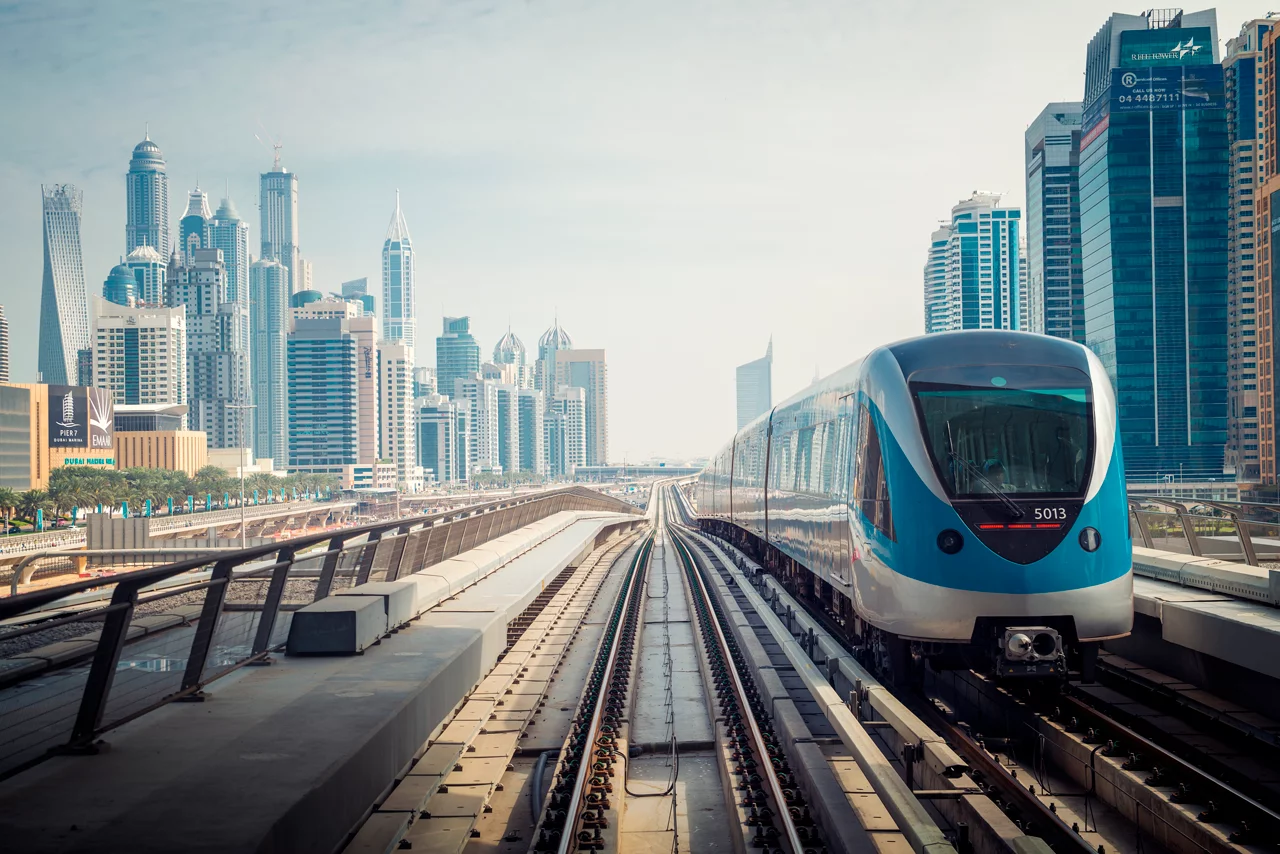
How much does it cost to attend Expo 2020?
In terms of tickets, Expo 2020 has just launched a half-price November ticket for AED 45 (USD 12,25) during weekdays. This offer is valid until November 30. The regular price for a daily pass is AE 95 (USD 26). Other types of tickets on offer include:
<ul><li>Multi-day passes (valid for 30 consecutive days) – AED 195 (USD 53)</li><li>Season pass (valid until March 31 2022) – AED 495 (USD 134)</li><li>Family package (for 2 parents plus a nanny) – AED 950 (USD 258)</li></ul>
In addition, there are VIP experiences available as well:
<ul><li>Jubilee Experience (4 season passes, 30 multi-day passes, 10 one-day passes) – AED 10,000 (USD 2,722)</li><li>Premium Experience (offers priority access to select events for networking) – AED 1,750 (USD 476)</li></ul>
The Jubilee Experience provides access to valet parking, a special lounge and discounts on F&B, while the Premium Experience pass offers 5 entries to the Premium Lounge at 2020 Club by Emaar, restaurant discounts and fast-track access. Entry is free for visitors aged under 18, anyone aged 60 and over, people with disabilities and students with a valid ID card from any academic institution across the world. Furthermore, attendees aged 18 and above are to present proof of a COVID-19 vaccination or a negative PCR test taken within the previous 72 hours. Tickets are available on the Expo 2020 website, at Dubai Metro stations, Enoc and Eppco service stations and through more than 2,500 authorized resellers worldwide.
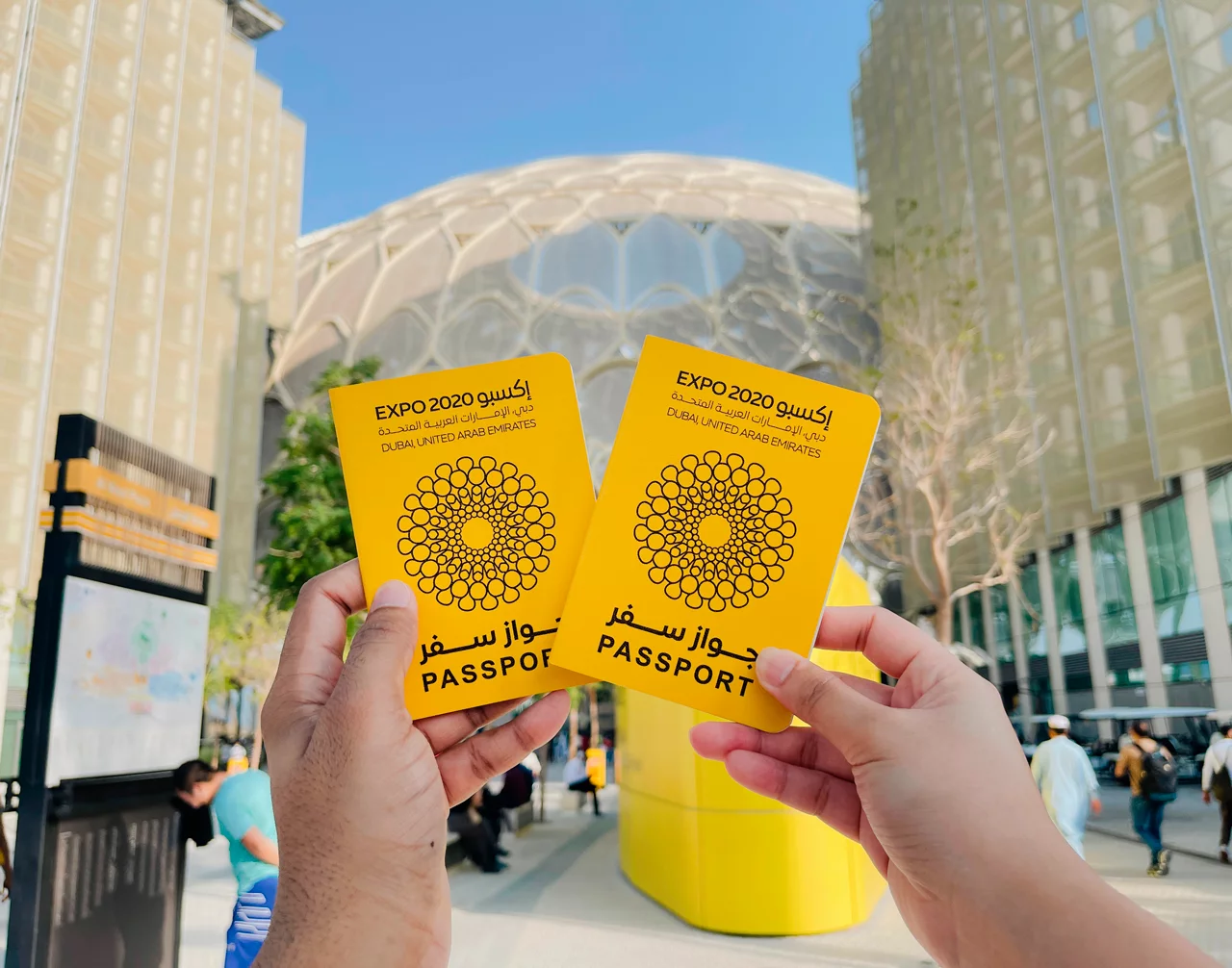
How Many Countries are Participating in Expo 2020?
The mega event hosts a total of 192 countries-participants, and currently, Dubai is the largest meeting of cultures that represents and unites the whole world. All countries are organized according to the above-mentioned sub-themes, not geographically.
What is the Purpose of Expo 2020?
The purpose of Expo 2020 is to increase awareness about the issues faced by humanity on a global scale and to connect countries with innovative and collaborative partnership programmes. Moreover, Expo 2020 enables countries to network with international businesses, contribute to economic growth and share expertise and knowledge.
How Many People are Expected to Visit Expo 2020?
Dubai, the region’s tourism, business and trade hub, is expecting to boost its economy by attracting 25 million tourist and business visits to the World’s Greatest Show.
Summary
<ol><li>Expo 2020 is set to become one of the main driving forces of the UAE economy.</li><li>Until the end of November 2021, visitors have an opportunity to purchase a daily pass with a 50% discount during weekdays.</li><li>Both the Jubilee Experience and Premium Experience packages offer on-site dining discounts.</li><li>In order to prepare for the grand event and to ensure the utmost convenience of visitors, the Expo 2020 Route in Dubai Metro and Expo Road were built specifically for the event.</li><li>If you live in an emirate other than Dubai, you can benefit from an Expo Rider Bus, which will take you to the event for free.</li></ol>


